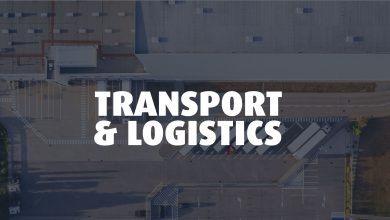THE PERFECT PAIR: SHOES AND FAST DATA
Shoe retailer Deichmann uses EDI software as its central data platform to interact with external partners and exchange information across the company
The Deichmann brand is a firm fixture on the world’s high streets. Around the globe, the company operates more than 3,000 sales outlets in 23 countries – from Germany to Spain to Turkey. In order to provide all these locations with the goods and services they need at all times, extensive internal and external data exchange is vital. From commissioning suppliers electronically to managing logistics supply chains and sending electronic confirmations to suppliers about their sales figures, Deichmann’s merchandise management system collects, consolidates and distributes a wide variety of information. And because of their wide-ranging locations, the system regularly needs to send, receive and forward thousands of different messages.
A platform for a variety of different formats
“In the past, separate interfaces had to be programmed for every single format and recipient. Today, it’s all done with a simple click of the mouse”, explains Torsten Frantz, Project Manager for Software Development at Deichmann.
For several years now, the company has been using Lobster_data software for its electronic data interchange (EDI) needs. As a communications gateway, they need to ensure rapid and error-free data exchange. The advantages of the new system are clear. The communications process is now entirely separate from all their content. If a Deichmann partner wants to receive information in a different format than before, for example, this change doesn’t affect the content of their files. This speeds up data exchange, and mission-critical processes can continue to run smoothly. As Torsten explains, “for us, it’s important that we can exchange data with our partners in a reliable way. That’s something we can guarantee with this software”.
Deichmann works with around 100 logistics partners around the world, who they connect to their IT systems via EDI. The company’s international service providers, including hauliers in Asia and shipping companies in Germany, all send data in different formats. All this information is converted so that Deichmann’s ERP system can process transport requests automatically.
“It saves us a huge amount of time”, adds Torsten. If an internal department requires regular information from the ERP system – for example, order status data – the process is similar. IT staff can offer their colleagues in other departments the ability to convert all kinds of documents. The process becomes automatic and data can be kept in the formats they typically work with.
“We opted for Lobster_data at the time because mapping was transparent and user-friendly”, says Torsten. “It really is a case of what you see is what you get”. For example, the software can read a table structure directly from a database and show it visually as a tree structure with all its various attributes. Today, Deichmann no longer needs to rely on an external service provider and can handle the entire interface connection process in-house. This is a faster and cheaper way of working. “In the past, we’d sometimes have to wait four or five weeks for our service provider to make a change. But since we’ve been able to do this ourselves with Lobster_data, adjustments take just three days. This makes us more flexible”, says Torsten.
Deichmann’s IT staff understand the importance of being adaptable in this industry. Once the shoe specialist signs a contract with a new company, their cooperation begins just two weeks later. As a result, staff need to integrate the new partner in Deichmann’s IT infrastructure within a very short space of time. “That’s no longer the headache it once was”, concludes Torsten.
More Use Cases on our blog.



